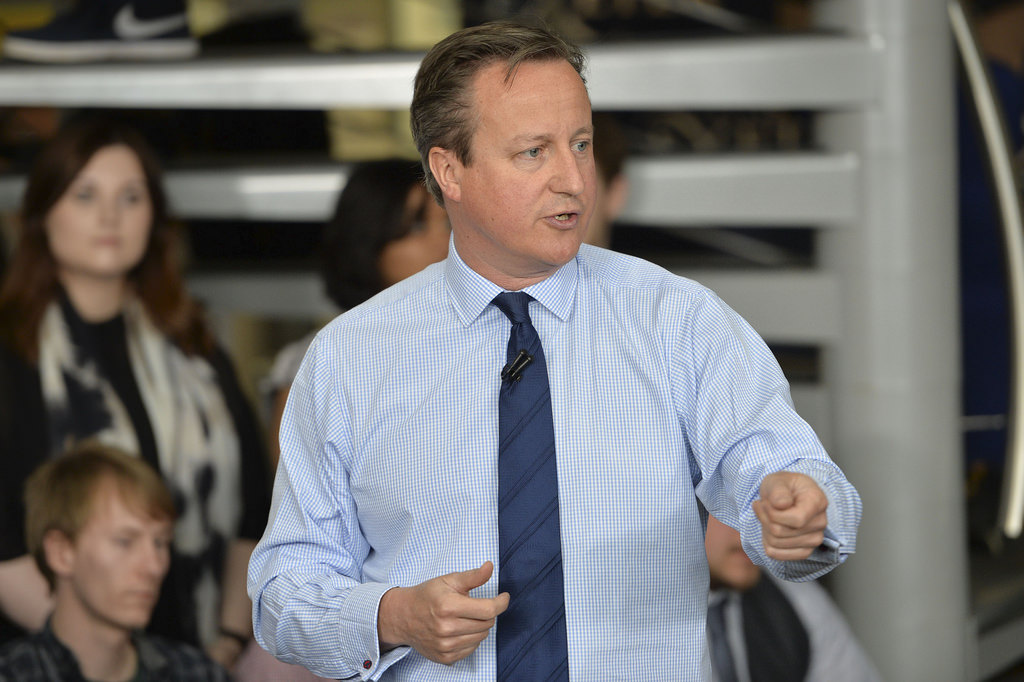“Cameron’s leadership offers two lessons”
August 22 The resignation of Britain’s Prime Minister after the historic Brexit vote offers an informative view on leadership, writes Mary-Jean Nleya, 24, a Correspondent from Botswana.
The resignation of Britain’s Prime Minister after the historic Brexit vote offers an informative view on leadership, writes Mary-Jean Nleya, 24, a Correspondent from Botswana.
As the media is abuzz with the resignation of David Cameron as British Prime Minister, there are leadership lessons to glean from his conduct.
On Wednesday, July 13, 2016 David Cameron officially resigned as the British Prime Minister following the historic Brexit vote from the European Union (EU). He resigned even though in 2015 he won the general election. His decision to resign was expressed on Friday, June 24, 2016, where he said that Britain required “fresh leadership to take it in [its new] direction”. This resignation brings his formal duties to an end after six years of being at the helm of Britain’s premier public office.
Why would his resignation serve as a learning tool for upcoming leaders, one may ask? Lesson number one: listening to the people you lead and serve – even though you disagree vehemently with what they say and you make that known to them. Lesson number two: listening to your own convictions and following those convictions as a leader.
Lesson number one from what I’ve coined as Cameron’s Leadership 101 class is about a bottoms-up approach to governance. Democratic systems are about giving a voice and a way in which the people can express their desires. The term ‘democracy’ originates from the ancient Greek word demokratia which literally means, ‘people-power’. Ancient Greece had hundreds of Greek democracies, with the oldest and the most stable being in Athens. However, contemporary democracy developed after the revolutions in France and the United States, with Abraham Lincoln having defined democracy as “The government of the people, by the people, for the people”. This representative type of governance is what I call a bottoms-up approach – when a leader at the top, even when it is inconvenient, takes a moment to listen to what his or her people have to say. This was the initial direction taken on by Cameron when, in 2013, he said that the people of Britain would “have their say” on whether Britain would remain or leave the EU. While others have criticised the former prime minister’s decision to call upon a referendum which would decide the fate of the UK’s membership in the EU, this was a way to “confront the issue … and lead the debate”, as Cameron opined back in 2013.
His decision to initially commit to holding a referendum, followed by the eventual referendum and the resultant vote, followed by his actions after the majority vote, all serve as a key lesson to emerging leaders on upholding democratic leadership. The manner in which Cameron has conducted his leadership duties is also particularly resonant to me, as a young African who is interested in African politics and improving the nature of governance on the African continent, because of the nature of some heads of state who cling onto power no matter what. These include: the leader of Cameroon, to that of Equatorial Guinea, to that of Zimbabwe and others in various regions of the world.
Lesson number two is authentic leadership and staying true to your own convictions as a leader. David Cameron explicitly opposed Brexit from the EU after spearheading a campaign to remain in the EU. However, despite his esteemed position as then-prime minister, his own convictions did not trump those of the majority of the people. At one point, after the referendum results, he said: “The will of the British people is an instruction that must be delivered”. Yet in the same vein, Cameron did not permit the majority’s view and ultimate vote to trump what he strongly believed and fought for during the Remain Campaign season, to this effect he said, “I was absolutely clear about my belief that Britain is stronger, safer and better off inside the EU [and] I made clear the referendum was about this, and this alone […] but the British people made a different decision”.
This article’s aim was simply to observe the nature of former Prime Minister David Cameron’s democratic leadership style before, during and after the referendum to leave or stay in the EU. The implications of a Brexit vote on the UK and its economy go beyond the scope of this article. Ultimately, Cameron will go down in history as the prolific and witty debater, who ushered in both a Britain outside of the EU and the second female British Prime Minister, Theresa May. In my opinion, Cameron is on the right side of history.
photo credit: David Cameron visits the University of Exeter via photopin (license)
…………………………………………………………………………………………………
About me: I am a young African who has a keen interest in the intersection between law, the media and economic development.
I have conducted extensive research on legal adjudicative methods to promote women’s rights, sustainable economic development and the African Growth and Opportunity Act and its implications on various sub-Saharan African economies. I am a One Young World Ambassador and hold an LL.M. from Harvard Law School and a LL.B. (cum laude) from the University of Pretoria, South Africa.
…………………………………………………………………………………………………
Opinions expressed in this article are those of the author and do not necessarily represent the views of the Commonwealth Youth Programme. Articles are published in a spirit of dialogue, respect and understanding. If you disagree, why not submit a response?
To learn more about becoming a Commonwealth Correspondent please visit: http://www.yourcommonwealth.org/submit-articles/
…………………………………………………………………………………………………




